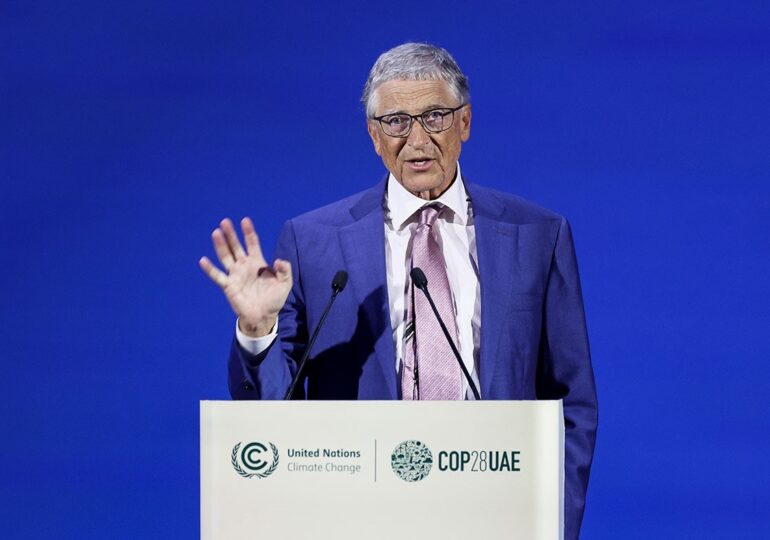In an unexpected move considered by some as a critique of „climate alarmism,” Bill Gates, one of the most well-known supporters of carbon emissions reduction, has published an essay in which he argues that resources should be redirected from the fight against climate change to other areas, such as combating hunger and diseases.
Gates asserts that the world’s philanthropists should increase their investments in efforts to prevent diseases and hunger, arguing that climate change „will not lead to the disappearance of humanity,” as reported by CNN. While acknowledging real progress in reducing emissions, he believes that some of the investments made so far have been misdirected, with „too much good money being spent on costly and questionable initiatives.”
"The Main Objective Should Be Preventing Suffering"
The billionaire emphasizes that investments in combating climate change must continue, but he warns that the budget cuts imposed by the Trump administration on the USAID agency pose a more urgent threat - with lasting effects on the global fight against preventable hunger and diseases.
"Climate change, diseases, and poverty are all major issues. We must address them according to the magnitude of suffering they cause," Gates wrote.
According to him, the funding cuts made by the Trump administration necessitate an immediate reallocation of resources towards those abandoned causes.
"While climate change will have serious consequences - especially for people in the poorest countries - it will not lead to the disappearance of humanity. We have the opportunity to focus on the indicator that should matter more than emissions and temperatures: improving lives. The main objective should be preventing suffering, especially for those in the most difficult conditions," he wrote.
Shocking Declaration Before COP30
Gates' essay comes shortly before the global COP30 summit, which will be dedicated to combating climate change.
The Trump administration has dismantled USAID - an international aid agency that provided around $8 billion annually for food and medicines for populations without access to these vital resources.
Gates rejects the idea that his current position represents a radical change. In Tuesday's essay, he reaffirms that humanity must continue efforts to reduce emissions to zero. However, in an interview with CNBC, he admitted that partially withdrawing from climate investments is "a major disappointment," but a "necessary" one.
The shift marks a stark contrast to previous years when Gates focused his philanthropy and investments on clean energy businesses and climate lobbying. In an essay published in 2023 on the Breakthrough Energy platform (later withdrawn), he wrote that the effects of climate change are "overwhelming" and require an "unprecedented response."
Critics of Gates
However, some critics believe that Gates' new approach creates a false dichotomy. A significant part of the suffering he now aims to combat is directly or indirectly caused by climate change.
"People are resilient, and while billion-dollar disasters will become increasingly frequent and devastating, humanity will not disappear from the face of the Earth," said Jennifer Francis, a senior researcher at the Woodwell Climate Research Center, to CNN. "However, investments must continue to address the root cause - greenhouse gas emissions - in parallel with treating the symptoms: health, hunger, infrastructure, and ecosystems."
Other experts believe that Gates is "missing the mark."
"There is no greater threat to developing countries than the climate crisis. Gates sees things completely backwards," said Michael Mann, director of the Penn Center for Science, Sustainability & the Media.
G.P.

